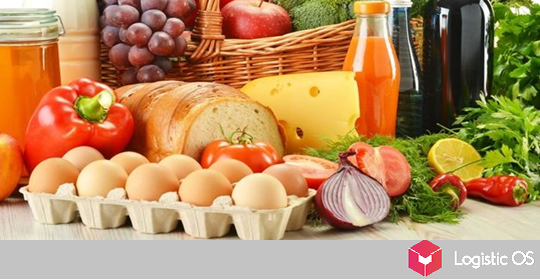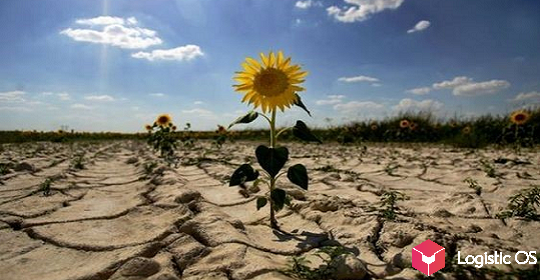Russia continues to establish and develop international relations in the agricultural field.
The attention of the world community after the coronavirus pandemic has focused on providing food to its population, or rather, minimizing its dependence on imports.
But closing borders, refusing to import and export will not solve this problem in any way: on the contrary, the solution is to competently combine the efforts of international and domestic large and small companies.
Director of the World Food Company (GDP) David Beasley believes that the problems received after closing borders, breaking supply chains, etc. not the most important at the moment, since most of the companies had stocks of food and seeds, due to the fact that the conclusion of such contracts is made in advance.
The biggest problem is the possible “delayed” effect. UN experts predict a further recession in the economy, falling incomes and rising food prices. At the end of 2020, more than 265 million people may be the victim of the largest humanitarian catastrophe of mankind.
To avoid this, the main task of all countries today is to ensure their own food security.
Russia, unlike other countries, is in a better position: the weight of products produced on the Russian market in the total volume of domestic market resources for grain, for example, amounted to 99% in 2019, for sugar and potatoes — 95%, for meat and meat products — 90%.
But agriculture cannot function without raw materials and components, and it is for them that we are very dependent on imports.
And if Russia provides itself by 90% for grain crops, then, for example, sugar beet seeds are exported almost 100%.
Of course, the export figures differ for different crops: sunflower seeds — 74%, corn — 54%, vegetables — 57%, soybeans — 58%, spring rape — 68%.
But here we must clearly understand that in some industries it is not only impossible to isolate oneself from interaction with the outside world, but it is also not necessary.
You can’t just take and start, for example, the production of seeds. If a powerful scientific base has not been created, there is no seed production as a system, then no investments will produce results.
And the fact that there are international companies in the domestic market only spurs its development: fierce competition teaches the domestic market to make a quality product.
If JohnDeere did not appear on the Russian market, it is not known whether Rostselmash could begin to produce competitive equipment, which is now actively purchased abroad.
According to representatives of international companies, the Russian market is one of the three most promising and fastest growing.
And this is confirmed by facts: the largest companies in the field of agribusiness — ADAMA, BASF, BAYER, Corteva Agriscience, FMC and Syngenta, which are members of the Plant Protection Products Manufacturers Committee (SZR), are developing a network of joint ventures with Russia.

Lipetsk SEZ will place an enterprise on its territory that will be involved in the formulation of complex herbicides (Syngenta investor — $ 30 million invested).
SEZ «Lipetsk» — BAYER became its resident in 2020.
Kirovo-Chepetsk Agrochemical Plant — most of the companies that are members of SZR work on its lines, producing 40% of the products sold in Russia.
«FMC Volga» Chuvashia — since 1998, its own FMC plant has been operating here, which in 2013 was fully modernized.
Remington (Stavropol Territory), together with Corteva Agriscience, produces corn and sunflower seeds.
Syngenta has its own research stations in Krasnodar, in Ramoni (Voronezh Oblast) and Samara .
She also launched a drying complex in the Kochubeyevsky district .
She also opened a phytopathological laboratory on the basis of the Skolkovo Center .
BAYER produces in the Voronezh Region, Krasnodar and Stavropol Territories seeds of maize hybrids.
Plant protection products, fertilizers and seeds are the three main areas that Russian farmers are investing in.
“Grain is like new oil”: this expression sounds more and more often.
“Oil will someday end, but grain will never,” said VTB Head Igor Kostin.

